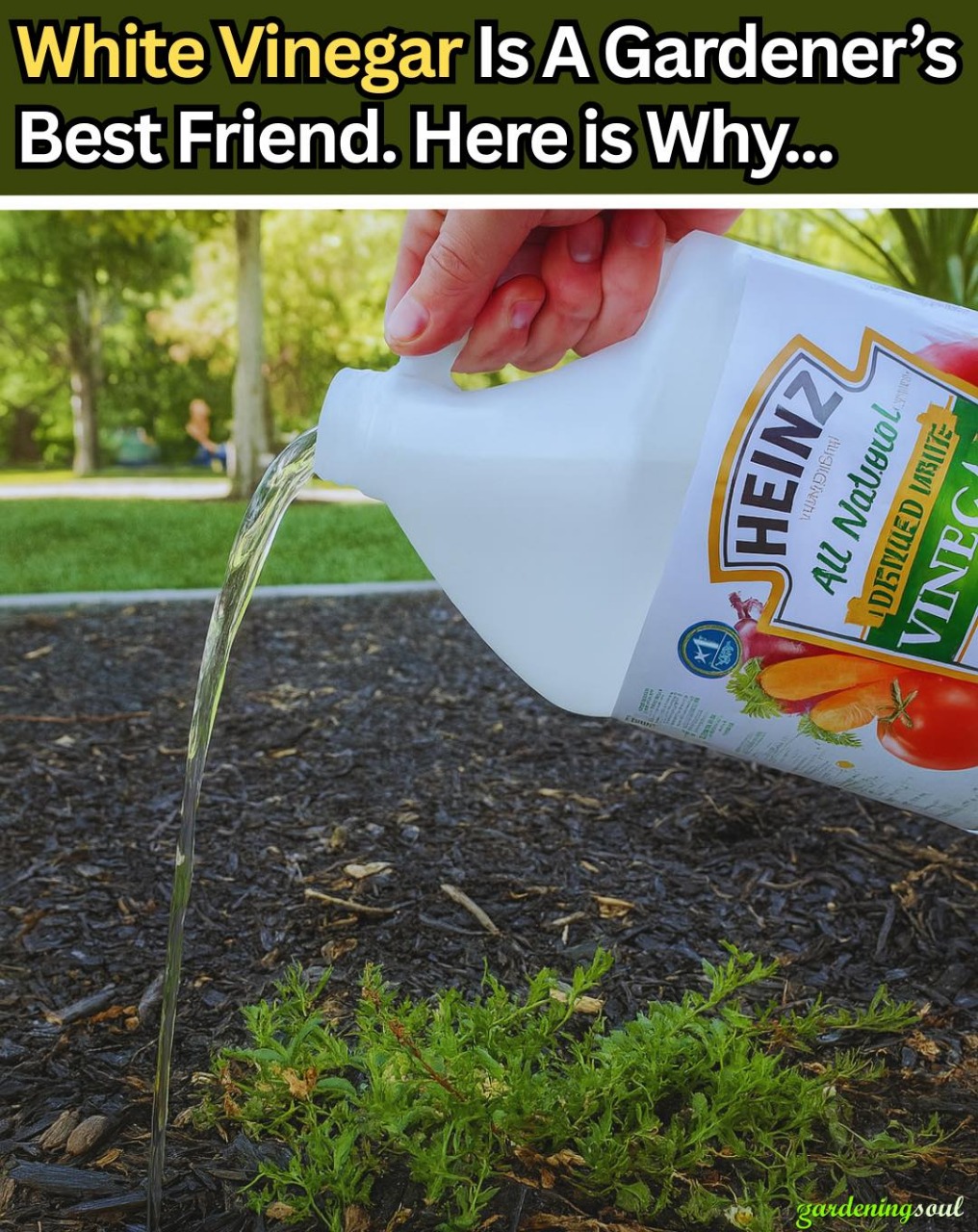When it comes to garden care, many gardeners look for natural, eco-friendly alternatives to chemicals. One humble kitchen staple stands out as a surprisingly versatile tool: white vinegar.
Beyond its role in pickling or cleaning, white vinegar offers dozens of benefits in the garden, from weed control to pest deterrence, soil adjustments, and more.
Affordable, biodegradable, and widely available, it’s no wonder gardeners worldwide sing its praises.
Let’s explore why white vinegar is a gardener’s best friend and how you can put it to work in 11 clever ways to improve your gardening game.
What Makes White Vinegar So Useful?
White vinegar is essentially acetic acid diluted in water (typically around 5%). This mild acidity has powerful effects on plants, soil microbes, and pests.
Key properties:
. Acidity: Alters soil pH, burns weed foliage, deters some insects.
. Antimicrobial: Helps clean tools, seed trays, and garden surfaces.
. Non-toxic: Safe for pets and the environment when used correctly.
. Low cost: Affordable and accessible.
When used wisely, vinegar is a safe alternative to many synthetic garden chemicals.
A Word of Caution
Before we dive into its many uses, remember that vinegar’s acidity can damage desirable plants, especially in higher concentrations.
Always:
. Use vinegar with care around valuable plants.
. Test on small areas before large applications.
. Avoid overusing vinegar in the soil, which can lower pH excessively.
Used thoughtfully, vinegar is a powerful ally in sustainable gardening.
1. Natural Weed Killer
Perhaps the most famous garden use for white vinegar is as a natural weed killer. The acetic acid burns the plant foliage, causing rapid dehydration.
How to Use Vinegar for Weed Control:
. Fill a spray bottle with undiluted 5% white vinegar.
. Spray directly on weed leaves on a sunny, dry day.
. Avoid spraying on windy days to prevent drift onto desirable plants.
For stubborn weeds, some gardeners mix in a teaspoon of dish soap. The soap helps vinegar adhere to leaves longer for better penetration.
Vinegar works best on:
. Young, annual weeds
. Weeds growing in cracks of sidewalks or driveways
. Weeds in gravel paths
Note: Vinegar kills the top growth but may not reach deep perennial roots. For deep-rooted weeds, repeat applications may be necessary.
see next page
For Complete Cooking STEPS Please Head On Over To Next Page Or Open button (>) and don’t forget to SHARE with your Facebook friends
ADVERTISEMENT

